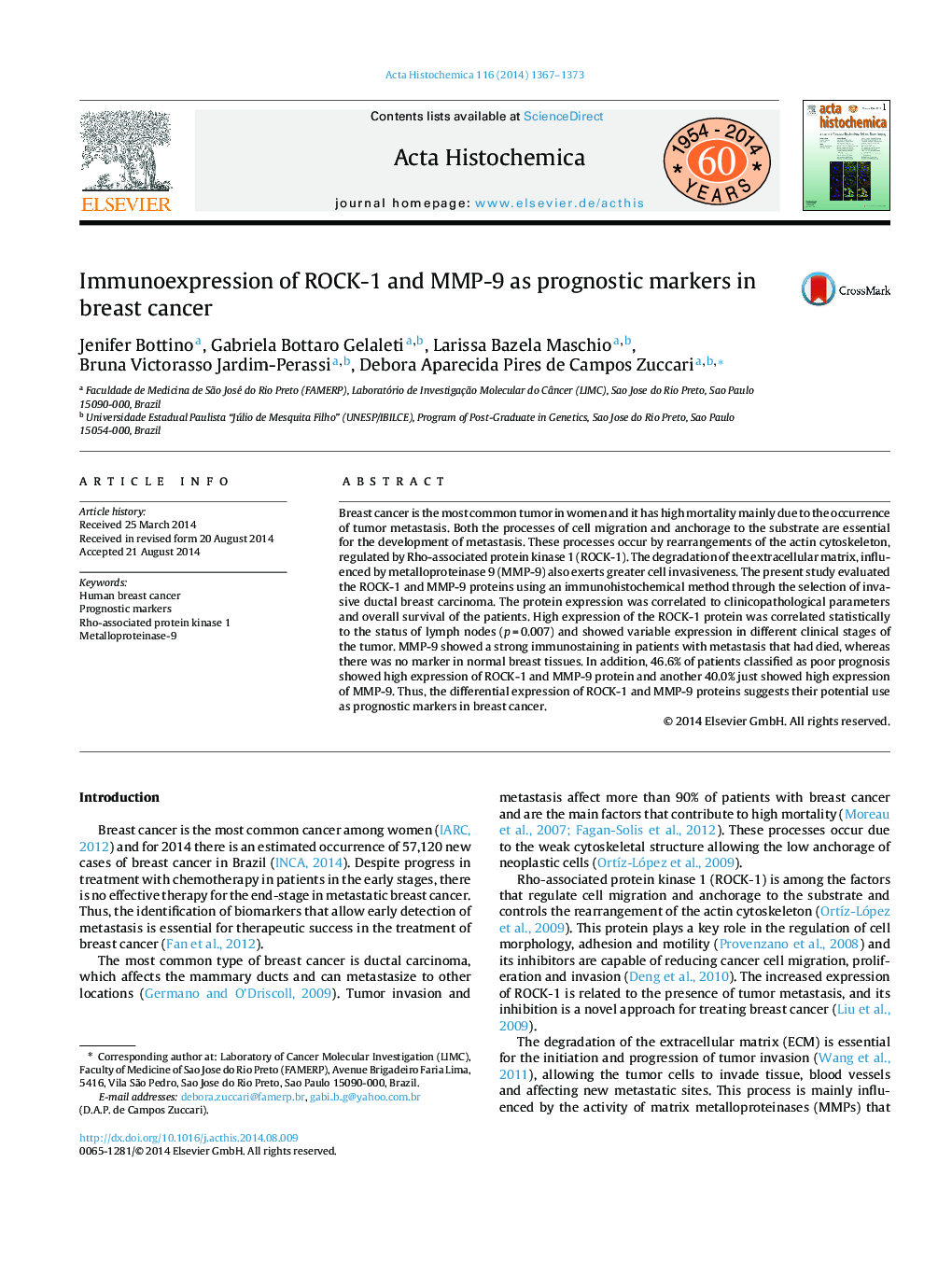| Article ID | Journal | Published Year | Pages | File Type |
|---|---|---|---|---|
| 10747148 | Acta Histochemica | 2014 | 7 Pages |
Abstract
Breast cancer is the most common tumor in women and it has high mortality mainly due to the occurrence of tumor metastasis. Both the processes of cell migration and anchorage to the substrate are essential for the development of metastasis. These processes occur by rearrangements of the actin cytoskeleton, regulated by Rho-associated protein kinase 1 (ROCK-1). The degradation of the extracellular matrix, influenced by metalloproteinase 9 (MMP-9) also exerts greater cell invasiveness. The present study evaluated the ROCK-1 and MMP-9 proteins using an immunohistochemical method through the selection of invasive ductal breast carcinoma. The protein expression was correlated to clinicopathological parameters and overall survival of the patients. High expression of the ROCK-1 protein was correlated statistically to the status of lymph nodes (p = 0.007) and showed variable expression in different clinical stages of the tumor. MMP-9 showed a strong immunostaining in patients with metastasis that had died, whereas there was no marker in normal breast tissues. In addition, 46.6% of patients classified as poor prognosis showed high expression of ROCK-1 and MMP-9 protein and another 40.0% just showed high expression of MMP-9. Thus, the differential expression of ROCK-1 and MMP-9 proteins suggests their potential use as prognostic markers in breast cancer.
Related Topics
Life Sciences
Biochemistry, Genetics and Molecular Biology
Biochemistry
Authors
Jenifer Bottino, Gabriela Bottaro Gelaleti, Larissa Bazela Maschio, Bruna Victorasso Jardim-Perassi, Debora Aparecida Pires de Campos Zuccari,
